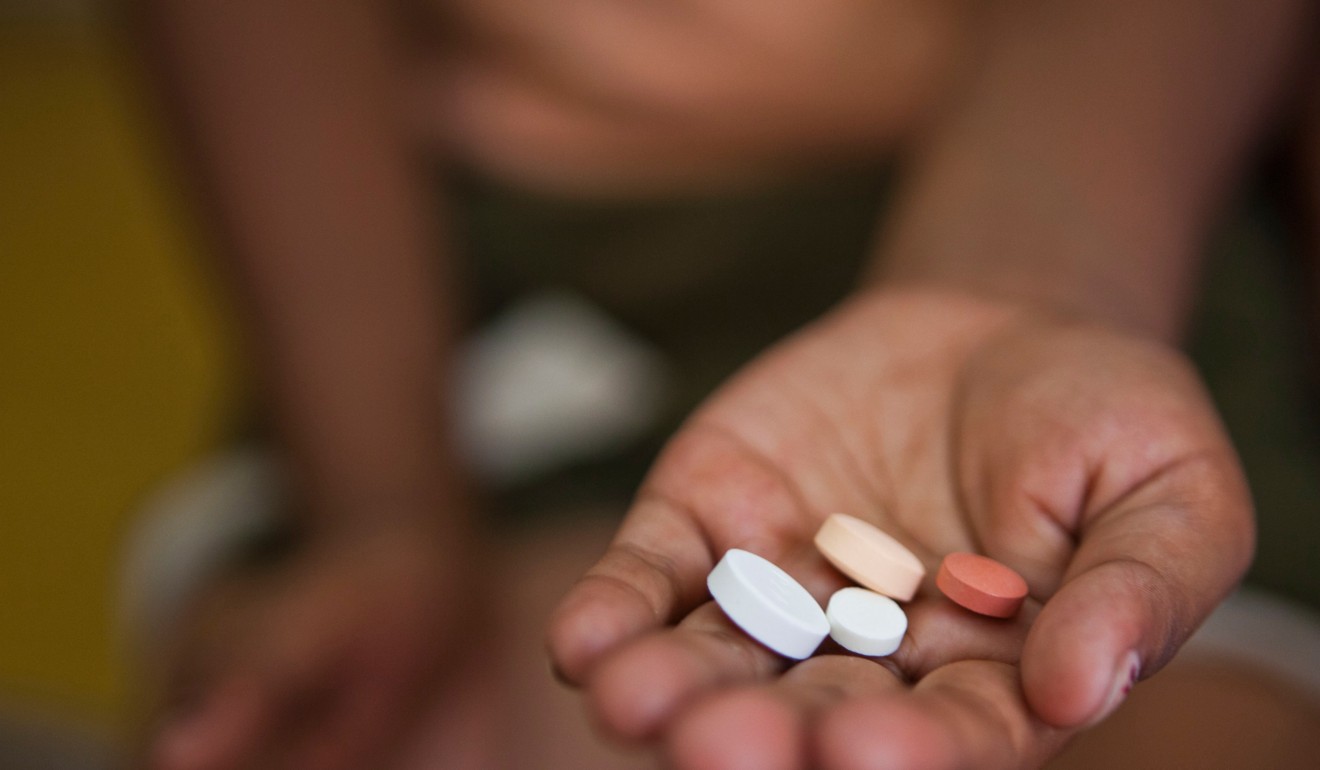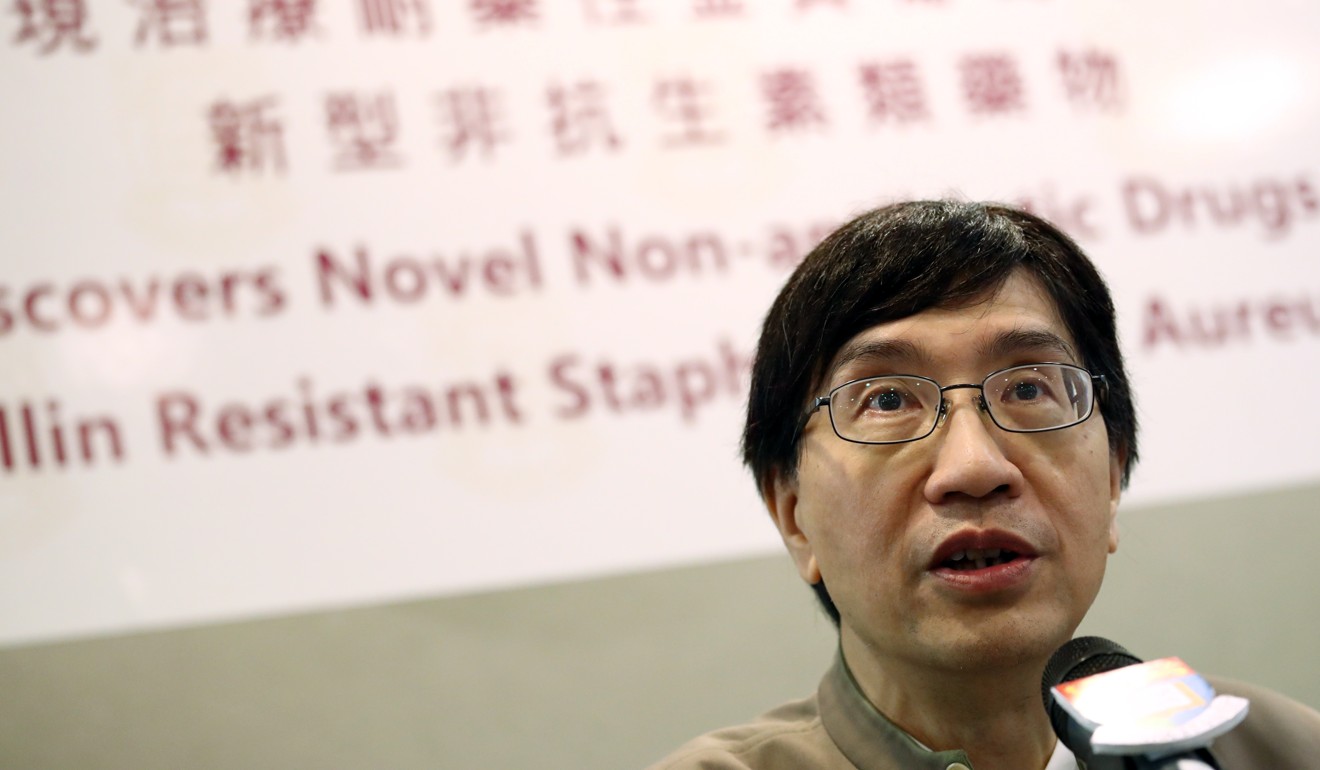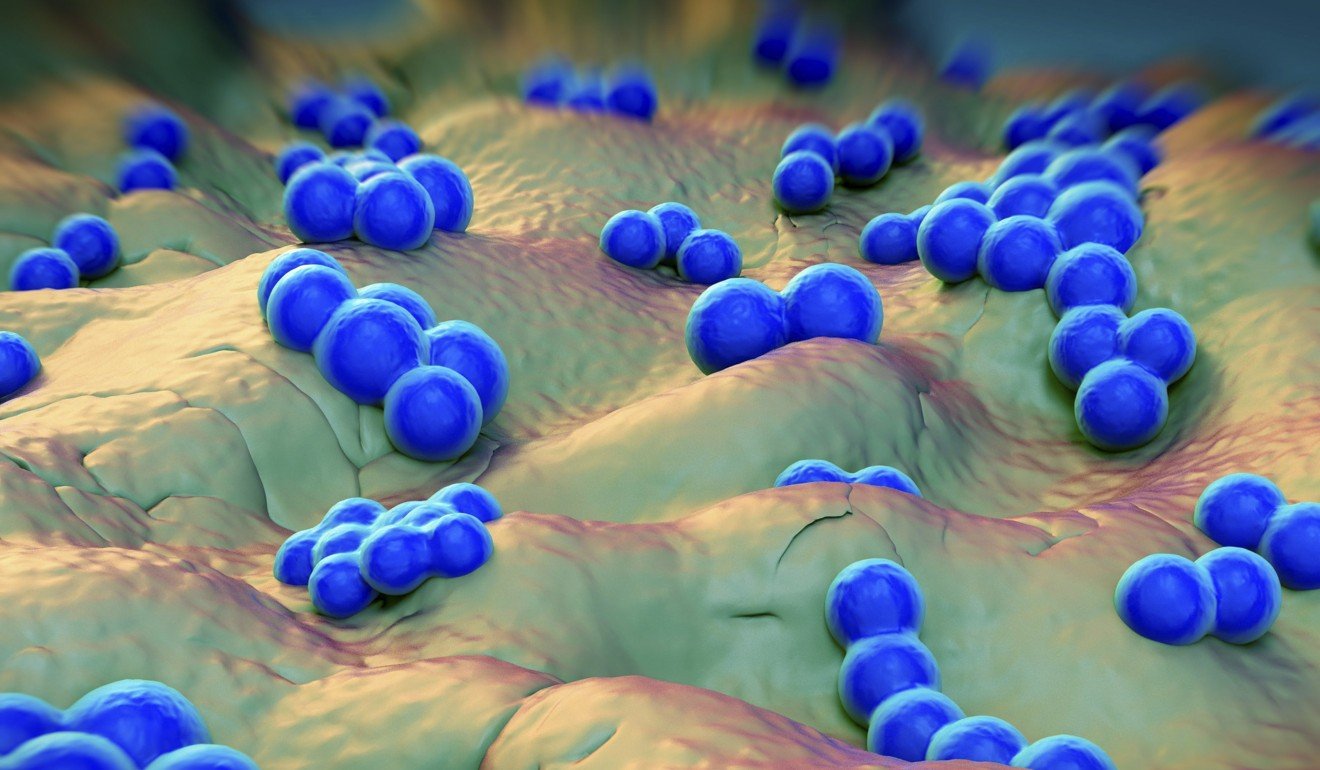
Explainer: why superbugs in Hong Kong are a concern and what’s to be done about them
Extra efforts have been taken in Hong Kong’s fight against superbugs by local health authorities during World Antibiotic Awareness Week, which runs till Sunday. On Monday, the city’s Centre for Health Protection for the first time issued a set of guidelines for family doctors on proper use of antibiotics for certain common infections. The guidelines recommended types of antibiotics, dosage amounts and prescription duration. Dr Angus Chan Ming-wai, chairman of the centre’s advisory group on the matter, hoped medical workers could make inroads in reducing abuse of antibiotics and thus lower the chance of drug resistance.

Why are superbugs a concern?
Superbugs are the name given to bacteria that are resistant to several types of antibiotics. The World Health Organisation (WHO) describes antimicrobial resistance – an umbrella term referring to microorganisms such as bacteria and viruses being resistant to medication – as an “increasingly serious threat” to global public health. It could be more difficult for doctors to treat people carrying superbugs with existing antibiotics. Treatment failure is more likely, and treatment costs could be more expensive. Antimicrobial resistance also lengthens one’s hospital stay.
Drug guidelines ‘useless’ without tracking how Hong Kong family doctors prescribe antibiotics
Resistance to antibiotics happens when there is an overreliance on medication against bacteria.
Drug-resistant bacteria can develop in both humans and animals, and spread to others when hygiene is substandard.
How serious is the situation in Hong Kong?
The city’s top microbiologist, Professor Yuen Kwok-yung of the University of Hong Kong, described it as “horrifying” to see nearly half of interviewees in a government phone survey saying they had taken antibiotics over the past 12 months. The survey interviewed 1,255 Hongkongers from late last year to early this year.

Citing local and overseas statistics, Yuen said 48 per cent of Staphylococcus aureus cases in Hong Kong were methicillin-resistant (MRSA), meaning they were superbugs. The local percentage was much higher in contrast with the count in the UK, where 11 per cent were MRSA. According to the WHO, those with MRSA were estimated to be 64 per cent more likely to die than people carrying a non-resistant form of the infection.
Superbug breakthrough by HKU researchers in fight against drug-resistant bacteria
A Consumer Council study last year found over 60 per cent of tested chicken samples available in local markets were found to contain a type of drug-resistant bacteria.
Why is it a problem in Hong Kong?
Yuen earlier this year warned the city was “lagging behind” in combating the spread of superbugs. There was not enough information transparency. While the overall number of types of drug-resistant bacteria cases in public hospitals are disclosed by the Hospital Authority every year, antibiotics consumption is not disclosed to the public. The prescription patterns of private doctors were unknown even to the authorities. That was in contrast with the UK, which discloses such prescription data to the public. Yuen believes disclosure can put doctors under scrutiny. Some doctors in the city were also found to have wrongly prescribed antibiotics for illnesses not caused by bacteria.

The misuse of antibiotics for livestock is another problem, as some farmers the Post spoke to said they gave them to animals even when they were healthy. Farmers said there was a scarcity of veterinary surgeons in the city specialising in pigs or chickens. This prompted farmers to give medication to animals based on their own experience and assessments.
Hong Kong doctors asked to report antibiotics use amid global superbug crisis
What has the Hong Kong government done to tackle the problem?
The government launched the Hong Kong strategy and action plan on antimicrobial resistance in July. The five-year plan made recommendations on what the city should do to tackle the growing problem. Examples included the possibility of asking private doctors to report their prescription patterns through an electronic health record system; banning farmers in the future from giving antibiotics to food animals unless they were prescribed by vets; and stepping up inspection of pharmacies that buy large amounts of antibiotics.
What can the general public do to reduce the risk of getting a superbug?
The Centre for Health Protection said following doctors’ advice when taking antibiotics would help. Do not stop taking antibiotics without a doctor’s consent, even when one is feeling better. Meanwhile, people are being urged to wash their hands before they eat and take their medicine. They should also wash their hands after using the toilet.

